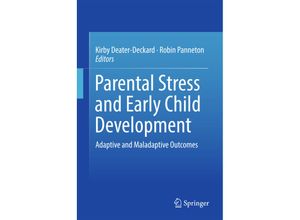This book examines the complex impact of parenting stress and the effects of its transmission
on young children's development and well-being (e.g. emotion self-regulation executive
functioning maltreatment future parenting practices). It analyzes current findings on acute
and chronic psychological and socioeconomic stressors affecting parents including those
associated with poverty and cultural disparities pregnancy and motherhood and caring for
children with developmental disabilities. Contributors explore how parental stress affects
cognitive affective behavioral and neurological development in children while pinpointing
core adaptation resilience and coping skills parents need to reduce abusive and other
negative behaviors and promote optimal outcomes in their children. These nuanced bidirectional
perspectives on parent child dynamics aim to inform clinical strategies and future research
targeting parental stress and its cyclical impact on subsequent generations. Included in the
coverage: Parental stress and child temperament. How social structure and culture shape
parental strain and the well-being of parents and children. The stress of parenting children
with developmental disabilities. Consequences and mechanisms of child maltreatment and the
implications for parenting. How being mothered affects the development of mothering. Prenatal
maternal stress and psychobiological development during childhood. Parenting Stress and Early
Child Development is an essential resource for researchers clinicians and related
professionals and graduate students in infancy and early childhood development developmental
psychology pediatrics family studies and developmental neuroscience.



